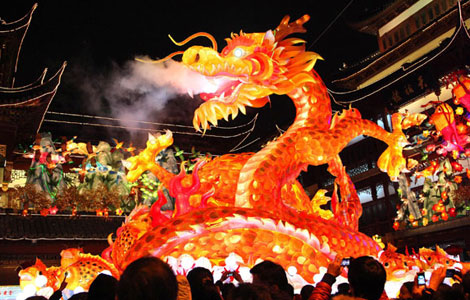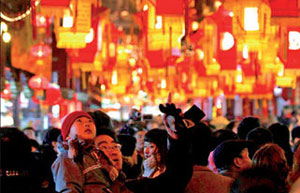Spicy, sumptuous slow food
Updated: 2011-11-21 13:41
By Ye Jun (China Daily)
|
||||||||
 |
|
The Tandoor restaurant specializes in North Indian dishes. Provided to China Daily |
BEIJING -- Taking your time in the kitchen is apparently one of the secrets to sumptuous Indian food.
 |
The Tandoor restaurant's classics, for example, need long hours in the kitchen. Its tandoori pomfret and tandoori chicken leg are marinated for hours to ensure that the meats absorb the spices. Afterwards, they are roasted for 20 minutes in a tandoor, a cylindrical clay oven that is used in traditional Indian cooking (and from which the restaurant derives its name).
The pomfret, however, has to be removed from the oven several times during the roasting process so that the fish does not burn, says Tandoor's executive chef Hira Bahadur Bk.
Other specialties need the same patience. The dal makhani, a vegetarian dish of black lentils, is set on low flame for at least 10 hours to achieve its rich, creamy texture. Meanwhile, the Indian version of chicken soup needs five hours in the pot for the meat and curry powder to properly meld.
Sample the restaurant's slow-cooked creations within a typical Indian meal, which consists of some light food before the meal, appetizers, the main dish, curry dishes, dessert and coffee or tea.
Start with a basket of cracker-like papadum over a bowl of chicken soup, accompanied by a plate of tomato, white turnip, carrot and cucumber.
For the main dish, try either a tandoori meat or chicken tikka masala, charcoal-roasted chicken chunks that are then boiled in ginger, garlic, onion and green pepper.
The vegetable and mushroom curry and beef makhani, are recommended curry dishes. The lamb korma is particularly popular with Chinese customers. These dishes go well with flat bread, such as butter naan or garlic naan, which you can dip in the rich and savory curry sauce.
Wash down the food with a bottle of Kingfisher, a lager beer that is India's answer to Tsingdao, and round out the meal with some Indian-style mango ice cream or mango lassi, a yoghurt-based drink with Indian spices. The bill should come to about 200-300 yuan ($31-47) a person.
The Tandoor, which has been around in Beijing for 10 years and in Shanghai for 20 years, serves both North and South Indian food, but it specializes in the less spicy and less heavy northern cuisine, particularly those that originate from the national capital of New Delhi.
The restaurant, in the busy Sanlitun shopping district, is not big, but it looks spacious, thanks to mirrors all around. The interior design commemorates Xuanzang and Faxian, Chinese monks who traveled to India in the first century and brought back Buddhist scripts. The walls are adorned with statues of Buddhist figures and fairy-tale characters.
Like those ancient monks, The Tandoor is spreading Indian tradition among the Chinese, and strengthening this delectable link.
You can contact the writer at yejun@chinadaily.com.cn.











